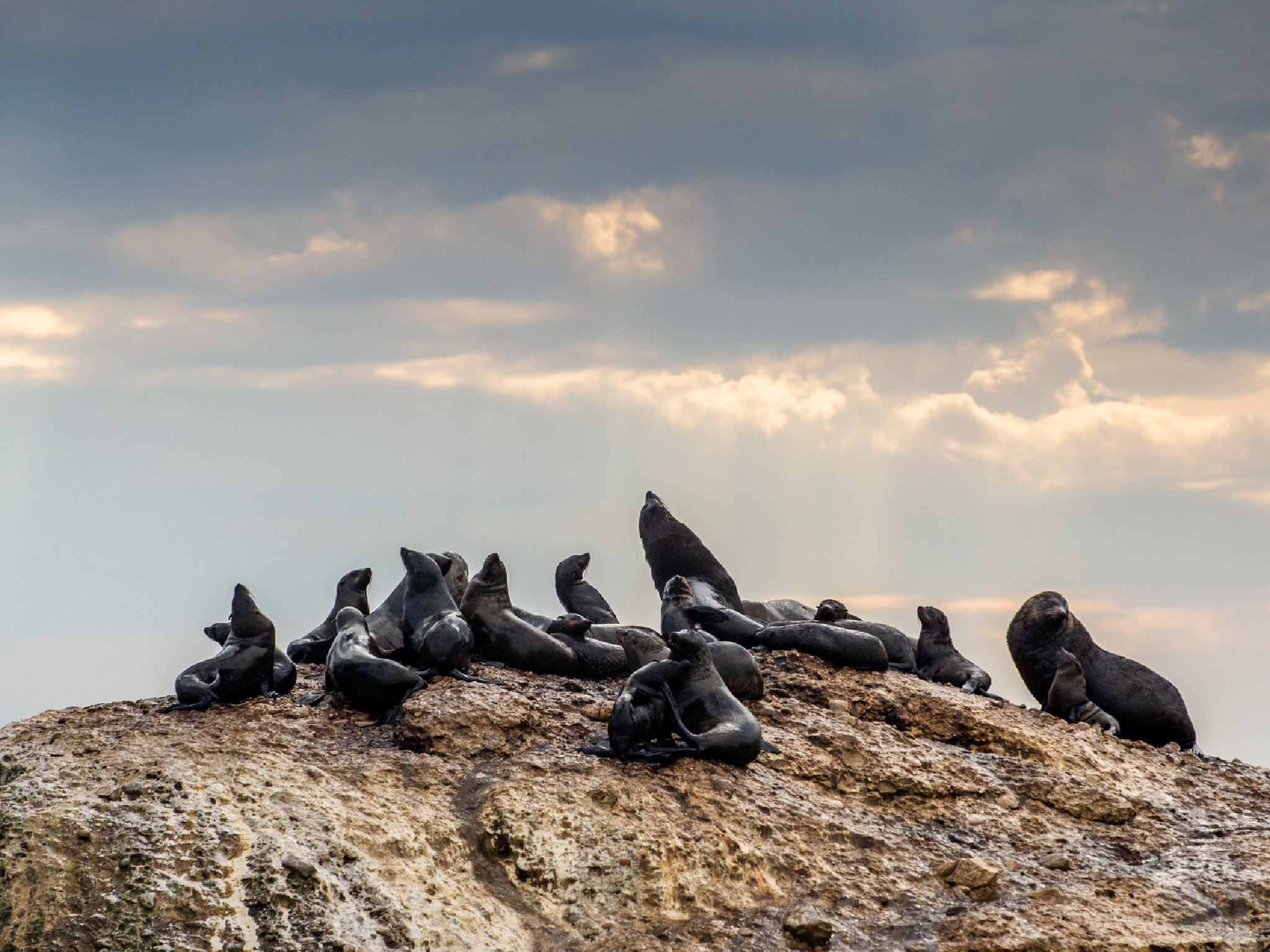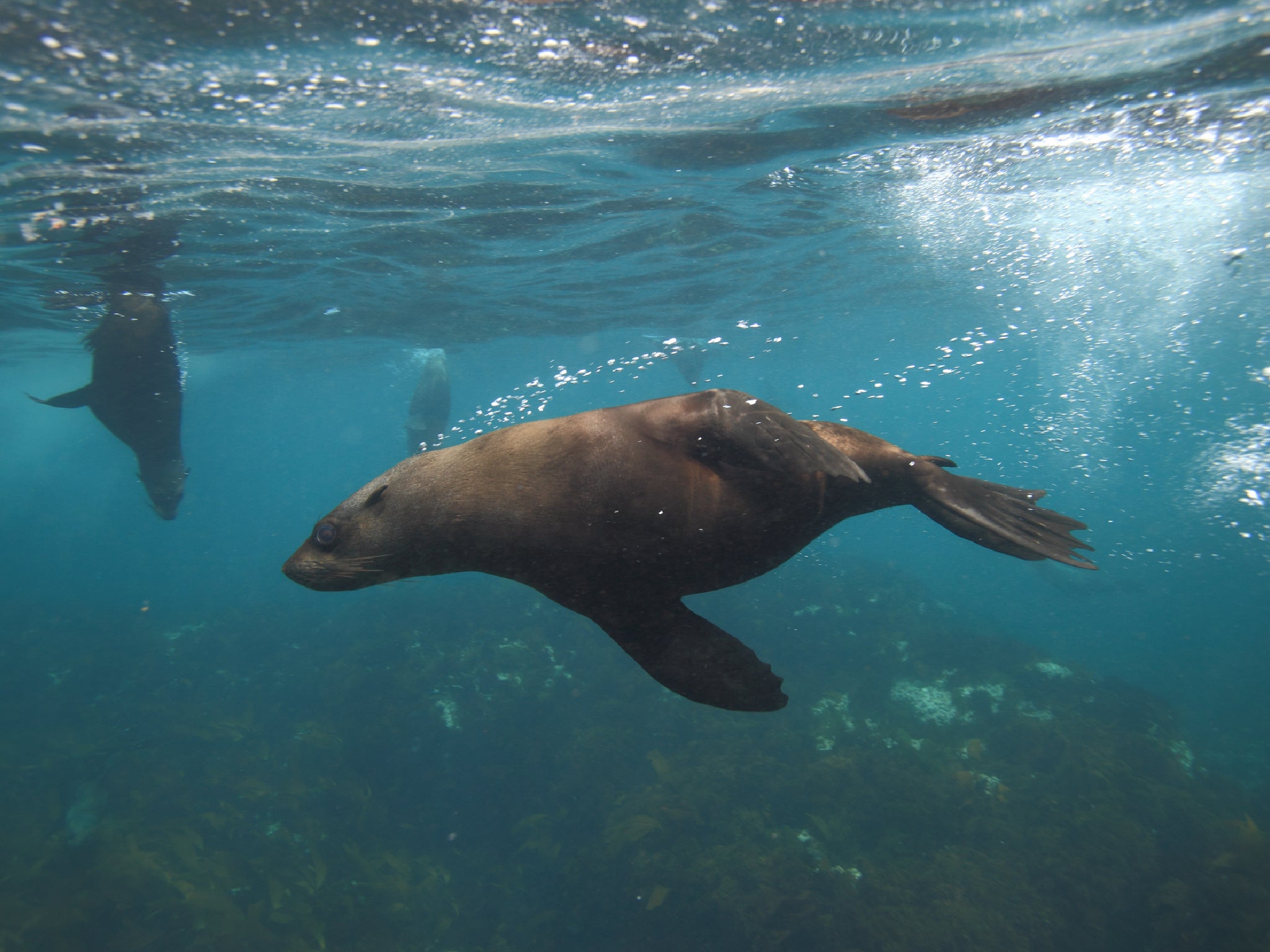Tourists in South Africa warned about rabies outbreak after several surfers bitten by infected seals
Nine seals have so far tested positivefor the disease

Your support helps us to tell the story
From reproductive rights to climate change to Big Tech, The Independent is on the ground when the story is developing. Whether it's investigating the financials of Elon Musk's pro-Trump PAC or producing our latest documentary, 'The A Word', which shines a light on the American women fighting for reproductive rights, we know how important it is to parse out the facts from the messaging.
At such a critical moment in US history, we need reporters on the ground. Your donation allows us to keep sending journalists to speak to both sides of the story.
The Independent is trusted by Americans across the entire political spectrum. And unlike many other quality news outlets, we choose not to lock Americans out of our reporting and analysis with paywalls. We believe quality journalism should be available to everyone, paid for by those who can afford it.
Your support makes all the difference.Tourists are being warned to be extra vigilant around seals if they’re visiting a 400-mile stretch of coastline off South Africa.
Nine Cape fur seals have tested positive for rabies, which could be deadly if passed onto humans.
The seals reside in an area popular with tourists and surfers, visited by around 30,000 Brits a year.
Until now, surfers and seals happily shared the water, with the marine mammals happily watching surfers paddle into the waves.
However, rabies makes the animals extremely agressive, and the cases of seals biting people and other animals has risen in recent months.

In May, a single seal bit three surfers in a matter of minutes and another seal swam ashore with facial injuries caused by another agressive seal.
After that incident, four seals were tested and three out of four tested positive for rabies. That number has now risen to nine.
None of the people bitten have developed the virus but early intervention and treatment are crucial to prevent rabies from progressing.
If left untreated, it’s almost always fatal in humans once symptoms start to appear, causing inflammation of the brain that is difficult to reverse.
To protect the outbreak from endangering tourists, lifeguards have been told to shut beaches if there are reports of aggressive seals, with members of the public asked to watch for them.
The City of Cape Town has put out warnings on its website and on social medoa for people to avoid contact with the animals and also keep their dogs and other pets away from seals.
“This precaution applies to the entire Cape Peninsula coastline. Any person bitten by a seal is urged to seek immediate medical attention and to notify the relevant authorities.
“The same applies to any pet bitten by a seal. The National Institute for Communicable Diseases (NICD) hotline doctors have been advised to recommend post-exposure prophylaxis for anyone who is bitten by a seal,” it said.
Rabies can develop in days or take up to two years for symptoms to appeear, so anyone bitten with the past 24 months is also advised to seek medcial attention.
Join our commenting forum
Join thought-provoking conversations, follow other Independent readers and see their replies
Comments